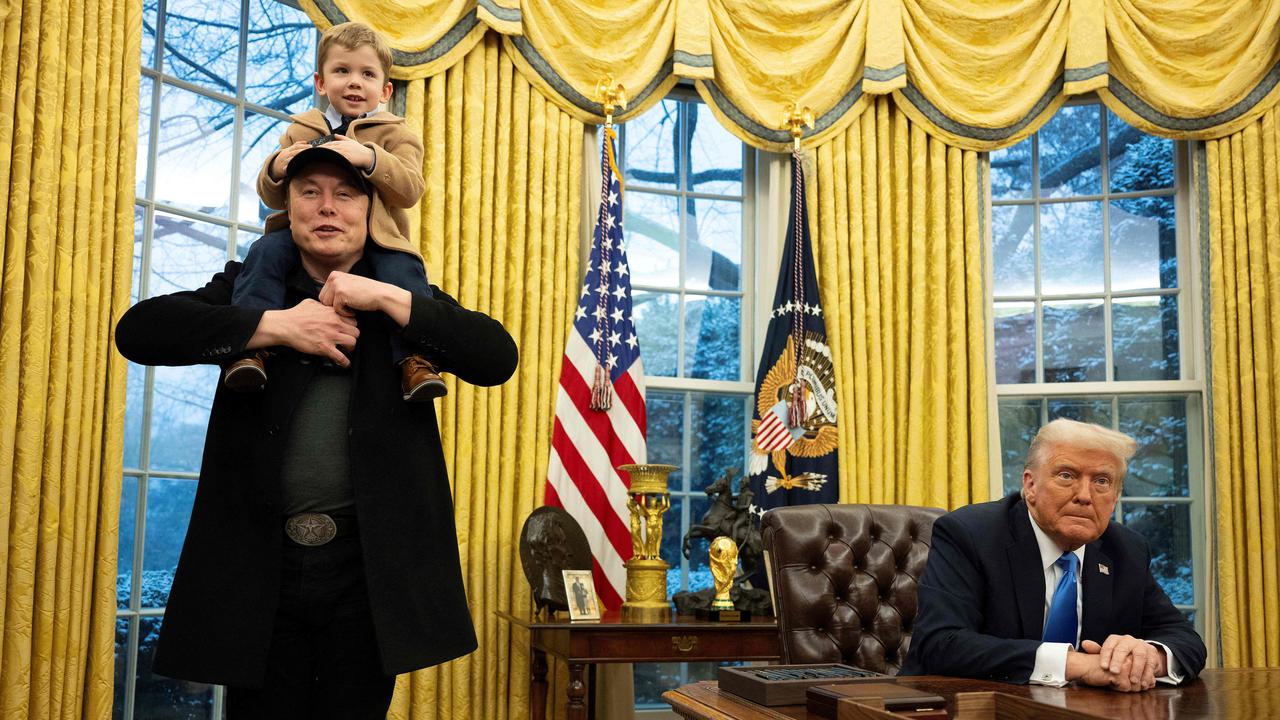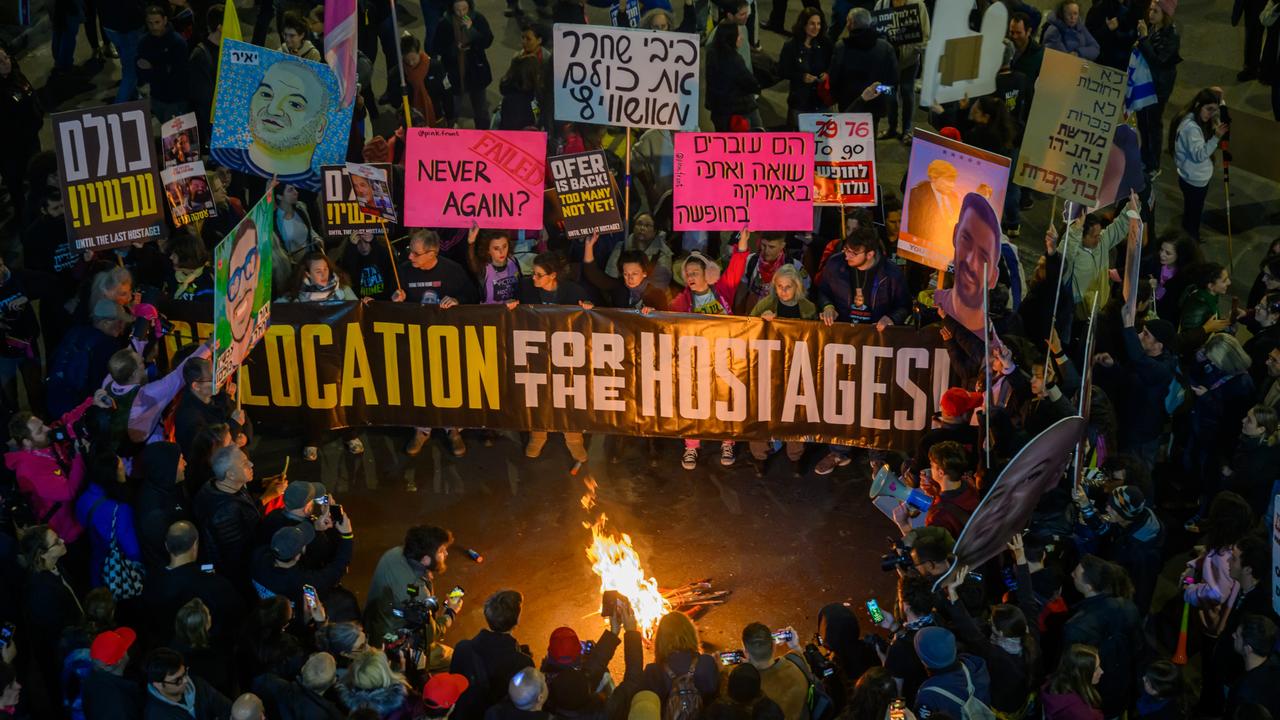Sri Lanka terror attack: Scott Morrison confirms suicide bomber spent time in Australia
Scott Morrison has confirmed one of the Sri Lankan suicide bombers spent time in Australia with a spouse and child.
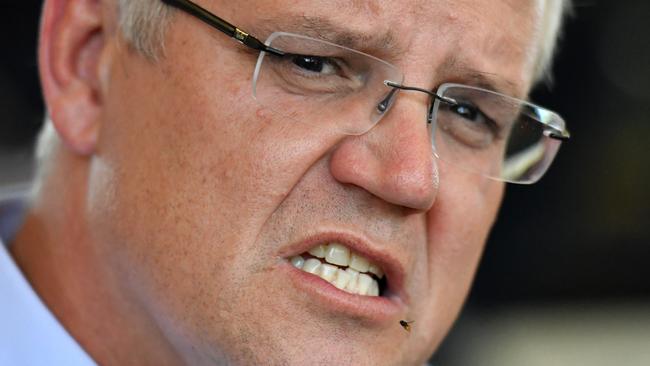
Scott Morrison has confirmed one of the suicide bombers involved in the Sri Lankan bombings that killed more than 350 people on Easter Sunday spent time in Australia.
The prime minister says the man was not granted another visa after leaving Australia more than six years ago.
“I can confirm that the suicide bomber had been in Australia. They departed in early 2013. That individual had been here on a student and a graduate skilled visa,” Mr Morrison told reporters in Townsville earlier today. “That individual had been here some years ago and they had a spouse and child visa at that time as well but they had not returned to the country.”
Mr Morrison’s comments come as details surrounding the aftermath of the attacks come to light, with the pregnant wife of one of the bombers killing herself, her three children and three police officers during a raid on their Colombo home on Sunday.
The wife, Fatima, detonated a bomb as police raided a home, which was built by the father of two brothers who bombed luxury hotels killing dozens of tourists at breakfast.
Details of the two brothers’ background have emerged, Inshaf and Ilham Ibrahim enjoying a privileged lifestyle before turning to radical Islam and jihad.
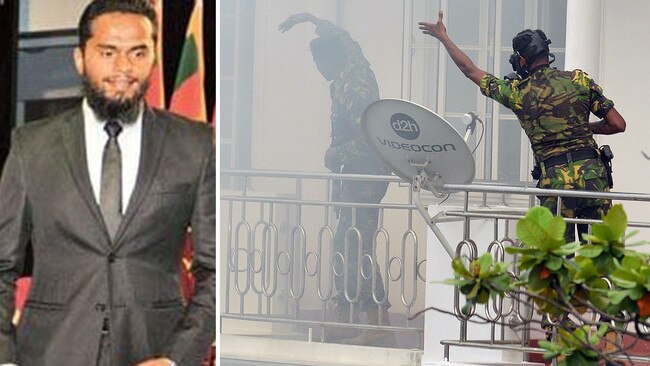
Sons of a millionaire spice trader, they were privately educated in the Sri Lankan capital. Inshaf later acquired a copper mine outside the city and it was there, police believe, that explosives for the bombs that killed 359 people were stored.
Amid the continuing investigation and a controlled explosion that caused panic in Colombo, a picture is emerging of the group behind the attacks. Ruwan Wijewardene, the defence minister, said the bombers were “well educated and come from middle or upper-middle class” families. Some had held law degrees. There were nine attackers in total, including a woman. All were Sri Lankan.
Inshaf and Ilham struck the Shangri-La and Cinnamon Grand hotels on the Colombo beachfront, mingling with guests before detonating explosive vests.
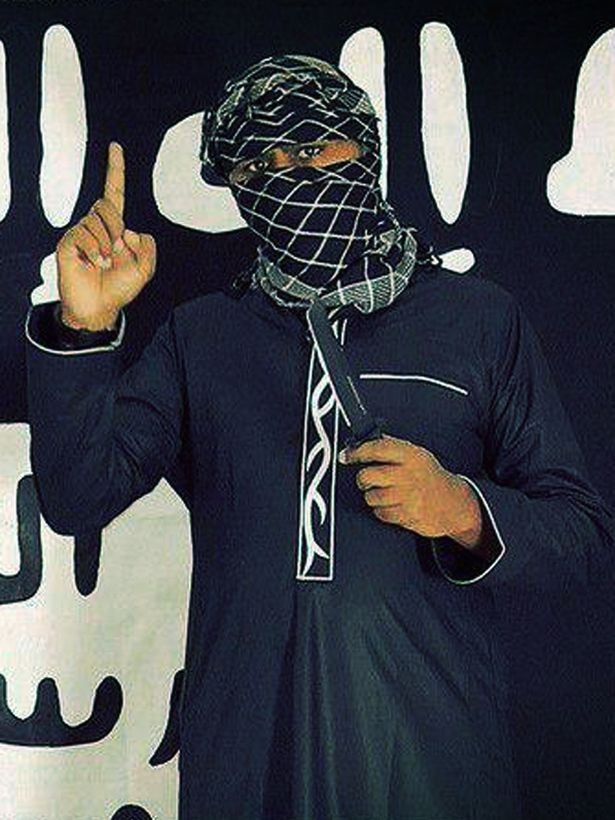
Described as a pillar of the community who gave generously to local charities, the spice magnate Mohammed Yusuf Ibrahim apparently let the property become a safe house for the bombers. He was among several people arrested after a shootout with police on Sunday, when a female bomber, thought to be his daughter-in-law, blew herself up, killing three officers. Mr Ibrahim’s white BMW remains outside the house as police and bomb squad searches continue. A lawyer for the businessman declined to comment.
Mr Ibrahim’s company, Ishana Exports, was credited with breaking the government monopoly on the spice trade in the early 1980s. Local reports note his reputation for paying generous rates to farmers.
How or when the brothers became radicalised is unclear. Neighbours in Dermatoba noticed suspicious activity beginning six months ago, with youths gathering at the property. Even then, the family remained cordial.
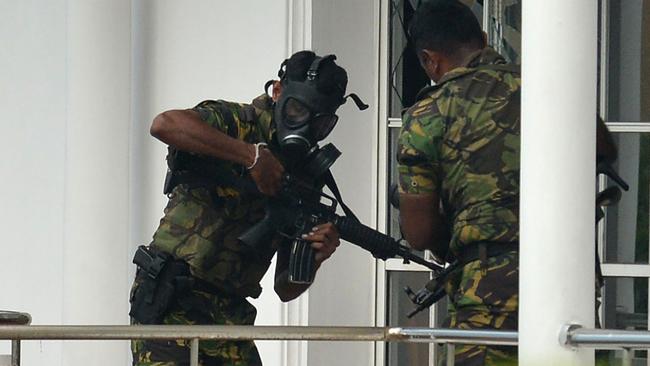
Security sources believe that the brothers turned to extremism after making contact with the radical cleric Zahran Hashim, leader of the local militant group National Thowheeth Jamaath. His potential ties to Islamic State, which claimed responsibility for the attacks, remain the focus of the investigation.
Isis has drawn extensively from the middle classes since its leader, Abu Bakr al-Baghdadi, declared the caliphate in Iraq and Syria in 2014. Inshaf and Ilham Ibrahim fit the profile that has enabled the jihadists to establish franchise groups, often with little or no initial contact with the high command. Energetic online recruitment has attracted benefactors and recruits not previously tempted by local militant outfits. That pattern appears to have been repeated again in Sri Lanka.
Fourth hotel bomb failed to explode
One of the Easter Day bombers tried to attack a fourth luxury hotel in the Sri Lankan capital but was foiled by a faulty suicide vest, The Times has learnt.
The bomber, who once studied in England, reached his intended target — the five-star Taj Samudra — but his explosives failed to detonate, according to an intelligence source.
He retreated to a safe house in the south of Colombo where the bombs had been assembled. The device was repaired and he struck a guesthouse close to Colombo zoo, killing two people. The casualties could have been far higher had he hit his original target, which lies between the Shangri-La and the Cinnamon Grand hotels, both of which were attacked on Sunday.
Security sources said yesterday that the bomber, Abdul Lathief Jameel Mohamed, had studied in England in the mid-2000s before travelling to Australia to start a postgraduate degree.
President Sirisena of Sri Lanka announced that he had asked for the resignations of the Defence Secretary and national police chief in an overhaul of the security forces. In a televised address he said that foreign intelligence warning of an impending attack had not been passed to him. India is said to have sent repeated warnings that an attack was imminent, naming churches and hotels among the targets. It even sent warnings the day before and on the morning of the attacks, CNN said.
Ranil Wickremesinghe, the prime minister, said that despite almost 60 arrests suspects were still on the run.
With AAP
The Times

